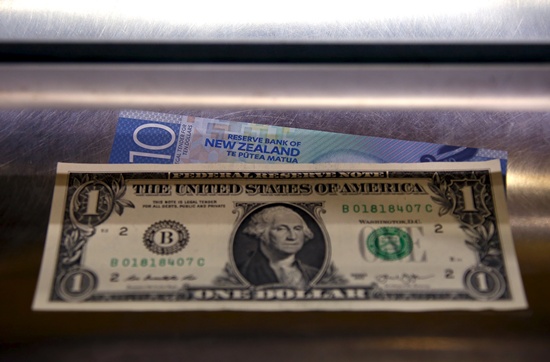
May 26, 2016
WELLINGTON (AFP) - New Zealand said Thursday its budget was in the black and predicted ongoing surpluses, but warned a British exit from the European Union could pose economic risks if it hit key exports like lamb and dairy.
The former British colony was badly affected in the early 1970s when London joined the European market, slashing its access for crucial agricultural exports like dairy -- the country's biggest export earner -- in a single stroke.
Treasury papers released in Thursday's New Zealand budget said the so-called Brexit was a factor that could derail the strong economic performance Wellington expects over the next few years.
"The possibility of Britain exiting the European Union may lead to high volatility in global markets," the papers said, adding this "would weigh on demand and inflation in New Zealand".
Finance Minister Bill English sidestepped the political debate about Britain's future in Europe, which will be decided by a referendum on June 23, but admitted he was wary about the economic impact of a vote to leave.
"We'd take the view that anything that creates significant uncertainly in the world's third largest economy probably isn't that good for us," English told reporters.
"But of course it's up to the British people to decide through their referendum."
Other potential downsides for the economy cited in the papers included a sharper-than-expected slowdown in China, geopolitical tensions in the Middle East, terror attacks in Europe and uncertainty over low interest rates.
There were no surprises in the budget, with the government keeping its powder dry for next year, when Prime Minister John Key will seek a fourth term.
English said the surplus for 2015-16 was NZ$668 million (US$448 million) and forecast a NZ$719 million surplus next year, rising to NZ$2.45 billion in 2017-18 and NZ$3.6 billion in 2018-19.
He announced modest new spending initiatives averaging NZ$1.6 billion a year, focusing on health, education, infrastructure and social welfare programs.
"The books are back in the black and we are taking the opportunity to address some of New Zealand's pressing social issues," English said.
He said the country was set to enjoy solid economic growth averaging 2.8 percent over the next four years.
"Only a handful of developed economies enjoy such a positive outlook," he added.








